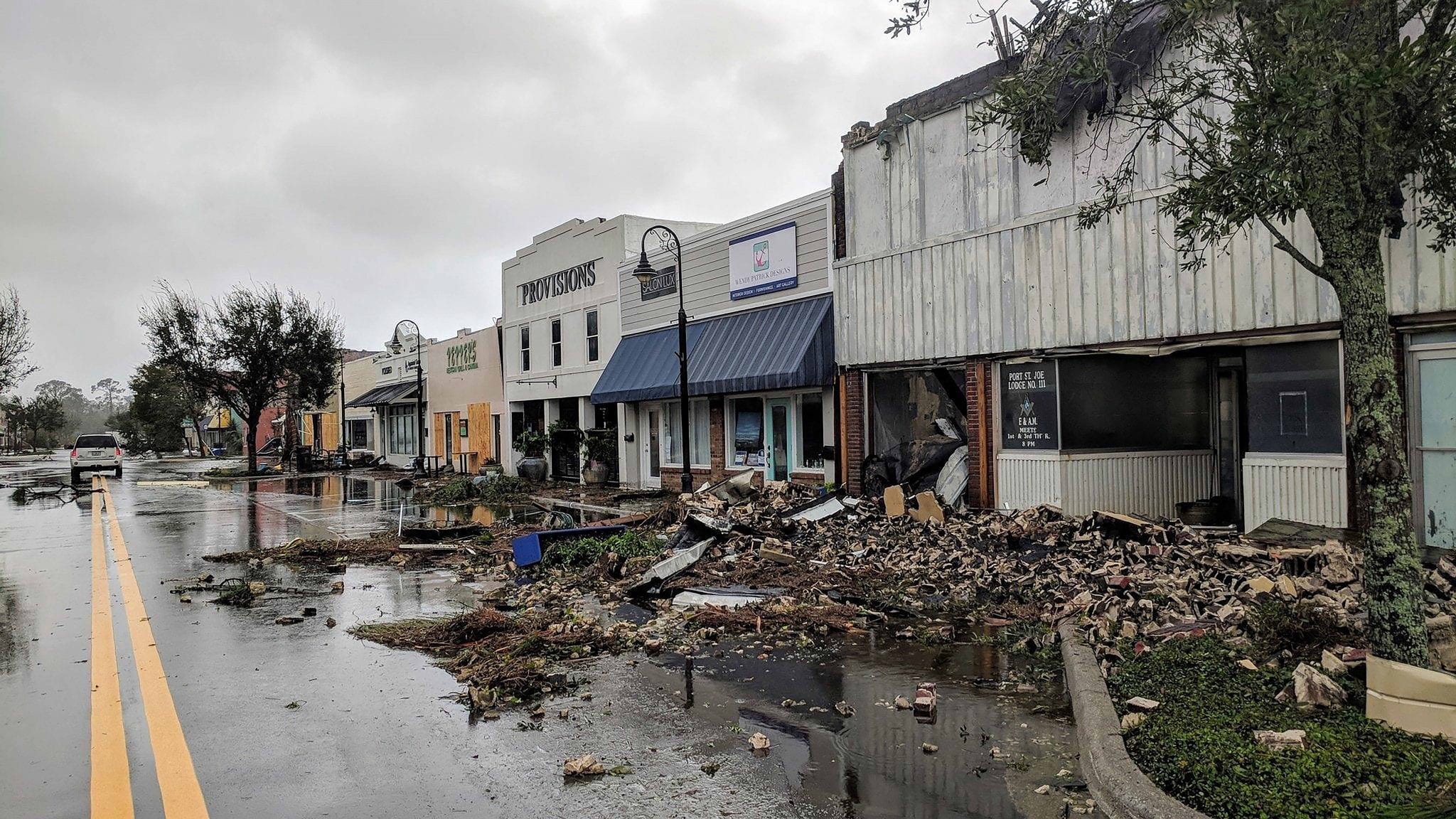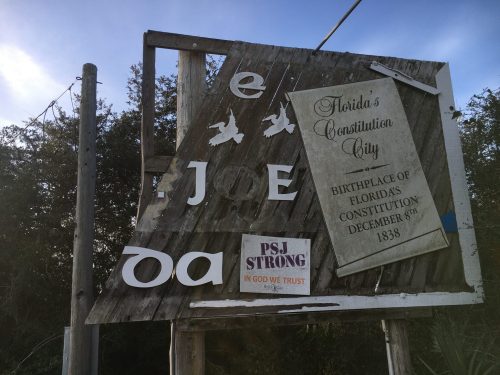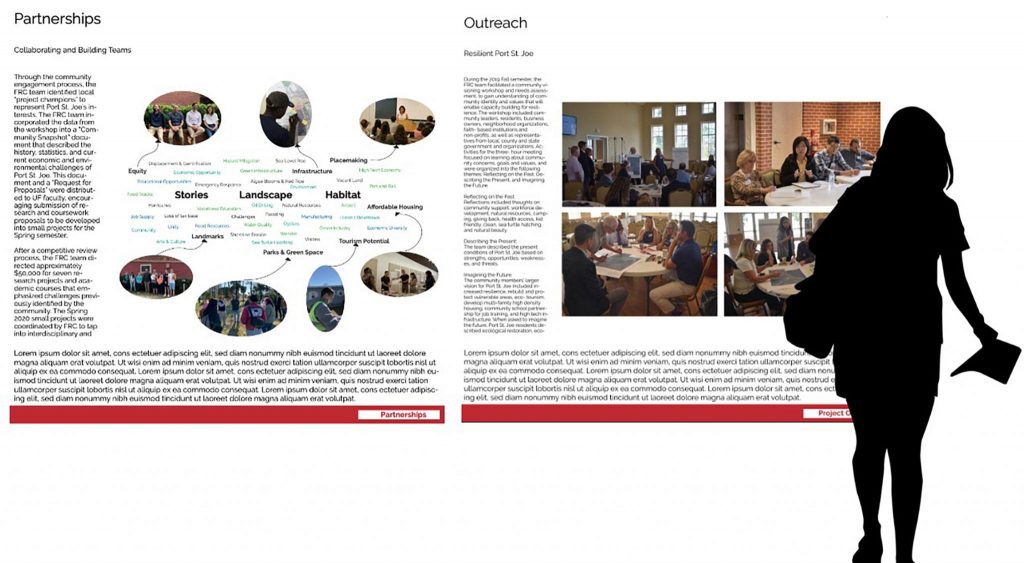Resiliency for Port St. Joe
URP student Emilee Aguerrebere assisted resiliency projects for Port St. Joe, FL, following Category 5 Hurricane Michael. She was a graduate research assistant for the interdisciplinary Florida Resilient Cities Program within the college-wide Florida Institute for Built Environment Resilience (FIBER).

Downtown Port St. Joe after Hurricane Michael in 2018. Source: Florida Resilient Cities
August 6, 2021
Students in the Master of Urban and Regional Planning (MURP) Program have many opportunities to participate in funded research projects led by faculty within the Department as well as interdisciplinary research centers in the College of Design, Construction and Planning.
Emilee Aguerrebere is one MURP student who worked with the interdisciplinary, college-wide Florida Institute for Built Environment Resilience (FIBER). Within FIBER, Emilee was a graduate research assistant for the Florida Resilient Cities Program, which seeks to support Florida communities to be resilient to the increasing risks caused by climate change. Emilee was on a project team with the Director of the Florida Resilient Cities program, Associate Professor Jeffrey Carney, and Postdoctoral Researchers, Carla Brisotto and Cleary Larkin.

For the past several years the Florida Resilient Cities Program has focused on the small, historical coastal town of Port St. Joe in the Florida Panhandle. Port St. Joe was devastated by the Category 5 Hurricane Michael in 2018.

Emilee helped create the exhibit Port St. Joe: from Hidden Coast to Resilient Model. In partnership with The Joe Center for the Arts, this exhibit will engage the Port St. Joe community by sparking dialogue around the topics of climate change, disasters, social inequity, and economic distress. The exhibit will be open to the Port St. Joe community during October 2021.
Emilee designed graphical representations of Port St. Joe ‘Year One Projects’ that will be illustrated in the galleries. In addition, Emilee assisted in material acquisition, fabrication, and installation, as well as the events.

In addition to research assistantships, the Florida Institute for Built Environment Resilience provides studios and courses on resilient design, as well as faculty support for students conducting senior capstones, master’s projects and theses, and PhD research. Also, in 2020 the Florida Resilient Cities partnered with the Florida Climate Institute to offer a graduate Field Course focused on Port St. Joe.